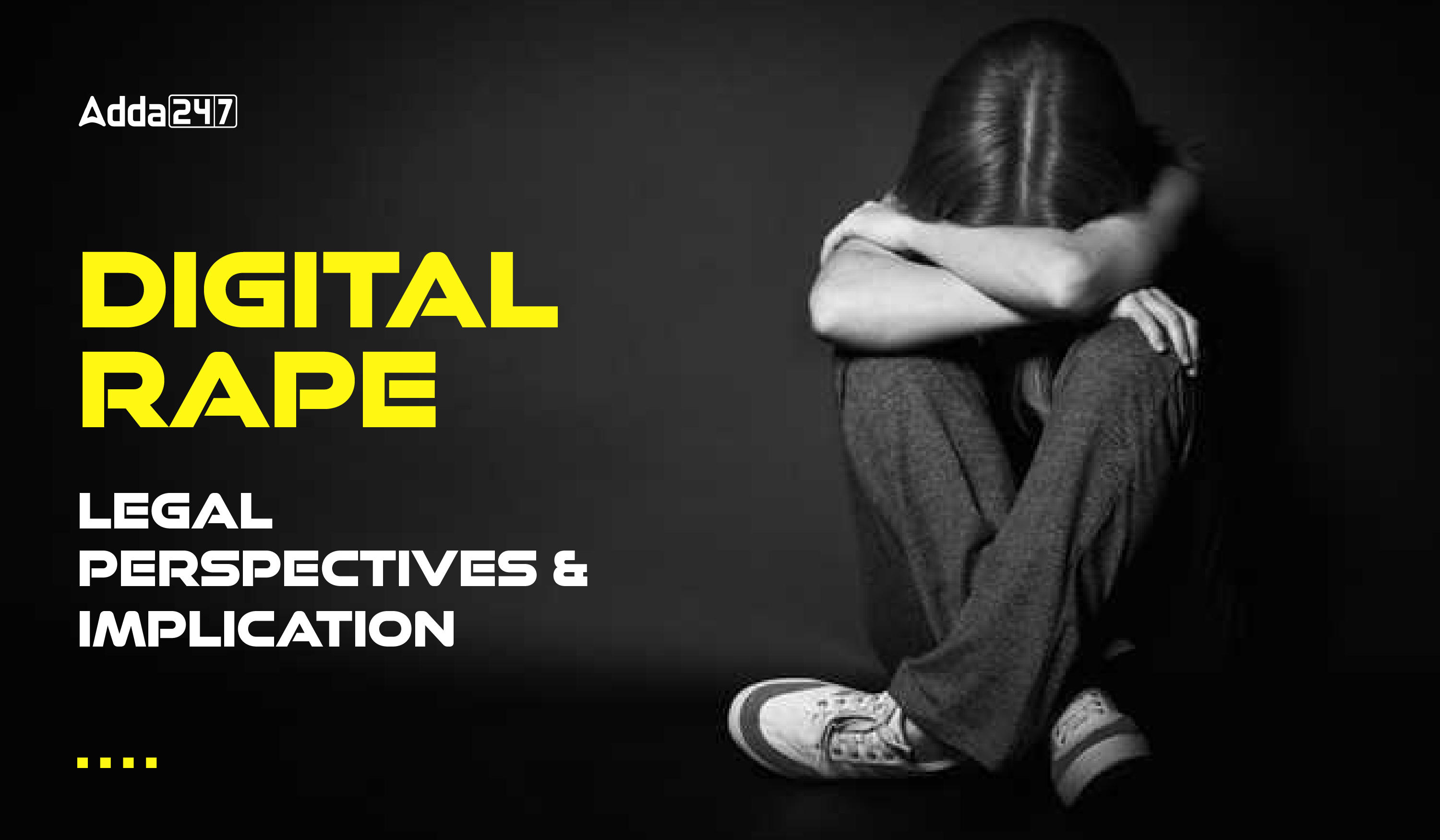Table of Contents
In recent times, the term ‘digital rape’ has generated considerable discussion in India. Contrary to common misconceptions, this term has nothing to do with the digital world of computers and gadgets. Derived from the English word ‘digit’, which means finger or toe, digital rape refers to the non-consensual penetration of a victim’s body using fingers or toes. This gender-neutral crime involves severe violations and has significant legal consequences in India.
Digital Rape: Meaning
Digital rape refers to the non-consensual penetration of a victim’s body using fingers or toes. It is a form of sexual assault recognized under Indian law, where ‘digit’ means finger or toe. This crime is gender-neutral, applies to any victim or offender, and is addressed under both the Indian Penal Code (IPC) and the Protection of Children from Sexual Offences (POCSO) Act.
Digital Rape: Legal Framework
Historical Context
Before 2012, Indian law did not specifically recognize digital rape as a separate offense. Such acts were generally classified under molestation, failing to capture the severity of the crime. The infamous Nirbhaya case in 2012 highlighted these legal gaps, leading to significant reforms in the Indian Penal Code (IPC) and the introduction of the Protection of Children from Sexual Offences (POCSO) Act.
IPC and POCSO Act Provisions
The legal recognition of digital rape came with the Criminal Law Amendment Act, of 2013. Under Section 375 of the IPC, rape is now defined to include the forceful penetration of the vagina, mouth, anus, or urethra by a penis, any foreign object, or any other part of the body, including fingers or toes. This amendment closed the loopholes that previously allowed offenders to escape severe punishment.
Additionally, the POCSO Act specifically addresses sexual offenses against minors. Section 3 of the POCSO Act defines penetrative sexual assault to include the insertion of any object or a part of the body, not the penis, into the vagina, urethra, or anus of a child. Under Sections 5 and 6 of the POCSO Act, aggravated penetrative sexual assault attracts rigorous imprisonment for a term of at least twenty years, which may extend to life imprisonment or even death, along with a substantial fine.
Digital Rape: Noteworthy Cases
Several cases have brought the issue of digital rape to the forefront. For instance, in Noida, a 65-year-old man named Akbar Ali was sentenced to life imprisonment for digitally raping a three-year-old girl. Another case involved an 80-year-old artist, Maurice Ryder, who digitally raped a girl over seven years. These incidents underscore the urgent need for stringent laws and effective enforcement to combat digital rape.
Digital Rape: Impacts
While the physical violation in digital rape is evident, the psychological trauma inflicted on victims is profound and often overlooked. Victims may suffer from post-traumatic stress disorder (PTSD), anxiety, depression, and suicidal ideation. These effects highlight the necessity of appropriate mental health support for victims alongside legal recourse.
Digital Rape: Challenges and Societal Awareness
Effective enforcement of laws against digital rape remains a challenge. Increasing the sensitivity of law enforcement officers, improving conviction rates, and minimizing the duration of legal proceedings are essential steps. Additionally, societal awareness and education about digital rape are crucial. Comprehensive sex education and public awareness campaigns can contribute significantly to preventing such crimes and fostering an environment where victims feel safe to report offenses.
Conclusion
The recognition of digital rape as a distinct offense in Indian law marks a significant step towards justice. By explicitly categorizing this crime, the law better protects victims and aids in more effective prosecutions. However, the journey towards a safer society is far from over. Effective legislation, enforcement, and societal awareness are key to combating digital rape and ensuring justice for victims. With these combined efforts, India can make substantial strides in addressing this heinous crime and protecting its citizens.



 TSPSC Group 1 Question Paper 2024, Downl...
TSPSC Group 1 Question Paper 2024, Downl...
 TSPSC Group 1 Answer key 2024 Out, Downl...
TSPSC Group 1 Answer key 2024 Out, Downl...
 UPSC Prelims 2024 Question Paper, Downlo...
UPSC Prelims 2024 Question Paper, Downlo...




